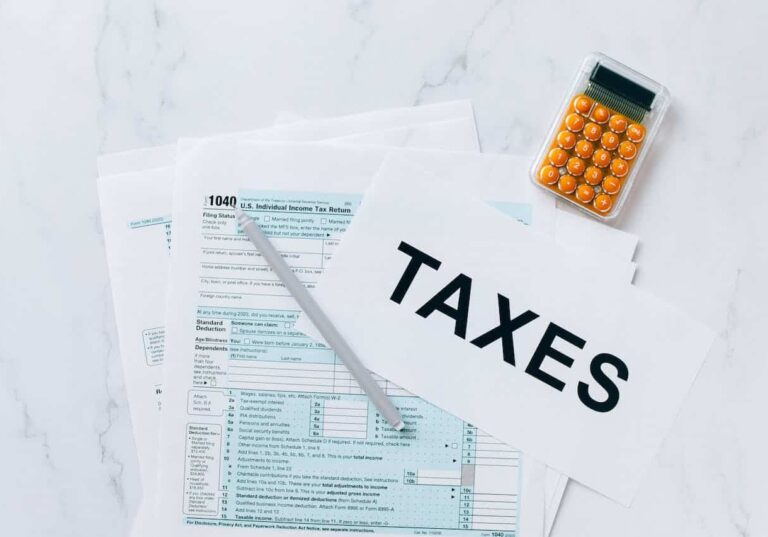
Paying taxes is a legal obligation, but that doesn’t mean you have to pay more than you owe. Individuals and businesses alike are using smart, legal strategies to reduce their tax liability.
From leveraging deductions and tax credits to relocating to tax-friendly countries, structuring income wisely, and using retirement or offshore accounts, there are many ways to lawfully lower your tax requirements.
In this article, we’ll explore the most effective legal tax strategies, explain how tax systems work in different countries, and provide actionable insights on how you can optimize your tax planning without breaking the law.
Understanding Legal Tax Avoidance
Before diving into strategies to avoid paying taxes legally, it’s essential to understand the difference between tax avoidance and tax evasion as this distinction separates smart financial planning from criminal behavior.
Tax Avoidance vs Tax Evasion
- Tax avoidance: The legal use of financial strategies and structures to reduce your tax liability. This can include claiming deductions, investing in tax-advantaged accounts, or relocating to a country with lower taxes. These methods are fully compliant with the law and widely practiced by individuals, corporations, and even governments.
One of the best example of a tax avoidance is the Cyprus tax for non-residents program. This is a legal program that offers significant tax benefits to individuals who qualify. Non-residents who become tax residents of Cyprus but have non-dom status are exempt from certain taxes, particularly foreign-sourced income.
- Tax evasion: This is illegally concealing income, falsifying records, or failing to report assets to avoid paying taxes altogether. It is a criminal offense and can result in severe penalties, including fines, audits, and even imprisonment.
A good scenario representing tax evasion would be a digital nomad, based in the United States, who earns $150,000 in the span of a year by working with various international clients. However, when he fills out his annual tax return, he only reports $50,000 of that income to the Internal Revenue Service (IRS). He is intentionally not mentioning the payments he received via cryptocurrency wallets and international bank transfers, hoping the income will go unnoticed and subsequently not be taxed.
Why Compliance With Local and International Tax Laws Matters
Every country has its own tax rules. Many participate in global reporting standards like the Common Reporting Standard (CRS) or FATCA (for US citizens). It’s critical to stay compliant with:
-
Local tax codes, including filing requirements and residency rules.
-
International obligations, such as reporting any offshore banking accounts.
-
Double taxation agreements (DTAs), which help avoid being taxed in two countries on the same income.
Failing to meet these requirements, even unintentionally, can turn a clever financial strategy into a legal problem.
Seven Ways to Avoid Paying Taxes Legally
While tax evasion involves illegal methods to avoid taxes, like underreporting income or hiding assets, tax avoidance is entirely legal. It refers to strategic tax planning that leverages existing laws to reduce or eliminate tax liability. These methods are widely used by individuals, businesses, and even multinational corporations to remain tax compliant while keeping more of their income.
Here are seven common ways to avoid paying taxes legally:
1. Self-employment tax deduction
 There are several ways to reduce tax bills and pay no taxes legally, and one of the easiest ways is to take full advantage of a self-employment tax deduction scheme. In the US, this deduction allows you to deduct a portion of your self-employed income from your taxable profit, provided there are allowable expenses.
There are several ways to reduce tax bills and pay no taxes legally, and one of the easiest ways is to take full advantage of a self-employment tax deduction scheme. In the US, this deduction allows you to deduct a portion of your self-employed income from your taxable profit, provided there are allowable expenses.
To qualify for the self-employment tax deduction, you must be:
- A sole proprietor
- A partner in a partnership
- A member of a limited liability company (LLC)
- Someone who files a Schedule C or Schedule C-EZ (Form 1040) with their tax return
If you meet any of the above criteria, you can claim the self-employment tax deduction on your Schedule SE (Form 1040) and report your self-employed income in the “Other Taxes” section of Form 1040. This way, the IRS will differentiate the self-employed tax from the federal income tax.
For example, let’s say you’re a sole proprietor and earned $80,000 in net income from freelancing. At the current tax rate of 15.3 percent – which is imposed on 50 percent of your income — you would owe the IRS $6,120 in self-employment taxes.
However, because you can deduct that portion of your self-employed income from taxes, your taxable income would be $73,880, which means you would save $936.
This scheme can save you significant money on your taxes each tax year. If you think you might qualify for this deduction, talk to a tax professional to verify your eligibility.
2. Business expenses
 As a freelancer, you can deduct various business expenses from your taxable income in a calendar year. These deductions include office supplies, travel expenses, and marketing costs – even if it’s for a home office.
As a freelancer, you can deduct various business expenses from your taxable income in a calendar year. These deductions include office supplies, travel expenses, and marketing costs – even if it’s for a home office.
You’ll need to keep records of all your annual spending on deductible business expenses and know which items are tax deductible.
You’ll also need to ensure that you deduct only expenses related to your business, as required by tax law.
Another way to deduct business expenses is by using the standard mileage deduction. With this method, you can deduct a certain amount for every mile you drive for business purposes.
It makes sense, as it’s still an expense for any business owner. In some cases, this doesn’t apply when driving to and from work, but you can include it when going to business meetings. This is crucial for small business owners, as time spent on the road could mean a reduction in income.
Educational expenses and business trips are another deductible that most people don’t consider. Whether they’re a side business or your main income, some countries let you include those details in your personal tax return.
Follow your country’s tax law and use the correct tax code for all your filings. Otherwise, your tax break can quickly become a nightmare, and you will have to repay an excessive amount in federal income taxes.
No matter which method you choose to calculate business expenses, make sure that you keep thorough records of all your spending. This will help you avoid any problems down the road and make it easier to prove expenditures.
3. Contribute to a retirement plan
 There are a few ways you can contribute to a retirement plan as a freelancer, which is also one of the simple ways to legally avoid or underpay taxes. There are two common ways to do this if you’re an American citizen. These are:
There are a few ways you can contribute to a retirement plan as a freelancer, which is also one of the simple ways to legally avoid or underpay taxes. There are two common ways to do this if you’re an American citizen. These are:
- Contribute to an IRA (Individual Retirement Account) – With a traditional IRA, you will not have to pay taxes on the money you contribute until you withdraw it in retirement. The age for withdrawal is 72.
- Contribute to a Roth IRA – With a Roth IRA, you’ll pay tax on the money you contribute now, but you will not have to pay tax on it when you withdraw it in retirement. The age for withdrawal is 59 and a half.
An example of this is that if you, as a worker in the 24 percent tax bracket, contribute $10,000 to your IRA, you will save $2,400 on income tax for that year.
4. Contribute to an HSA
One of the best ways for American taxpayers to minimize their retirement savings is to contribute to a Health Savings Account (HSA). An HSA is a tax-advantaged account that can be used to pay for qualifying medical expenses, including insurance premiums.
Contributions to an HSA must be made with pre-taxed income, which means they lower your taxable income. If you use the money in your HSA to pay for qualifying medical expenses, the withdrawals are tax-free.
There are a few things to keep in mind if you’re thinking about contributing to an HSA:
- First, you must enroll in a high-deductible health insurance plan (HDHP) to be eligible for an HSA.
- Second, there are contribution limits for HSAs. For 2023, the contribution limit for a freelancer with self-only HDHP coverage was $3,850, while the contribution limit for freelancers with family HDHP coverage was $7,750.
- And finally, you’ll need to designate a beneficiary for your HSA when you open the account.
5. Donate to charity
 On the question of paying no taxes legally, one of the most popular ways to do so is to donate to charity. By donating to a registered charity or private foundation as a freelancer, you can receive a tax receipt, which you can use to reduce your taxable income.
On the question of paying no taxes legally, one of the most popular ways to do so is to donate to charity. By donating to a registered charity or private foundation as a freelancer, you can receive a tax receipt, which you can use to reduce your taxable income.
To ensure that you maximize tax savings when you donate to charity, there are a few things to be mindful of:
- Make sure that you are donating to a registered charity. You can verify a charity’s registration via the website of your country’s tax authority. A tax authority would be the Internal Revenue Service irs.gov in the US or gov. uk in the UK.
- Keep track of all your donations so you can present your receipts upon request.
- Make sure you declare your donations when filing taxes to receive the maximum benefit.
Donating to charity is a great way to lower taxable income and provide financial support for those in need. Although charitable donations don’t generally save you money, many of us appreciate having greater control over where our taxed income – or non-taxed income in this instance – is distributed.
6. Claim Child Tax Credit
The Child Tax Credit is a refundable tax credit available to tax-paying parents with dependent children under the age of 17. It is worth up to $2,000 per child and can be claimed yearly when filing tax returns.
To qualify for the maximum tax credit, parents must have a gross income of under $200,000 for single parents and $400,000 for cohabiting parents. Each child must have a valid Social Security number. Additionally, the child must reside with the taxpayer for over half of the tax year.

